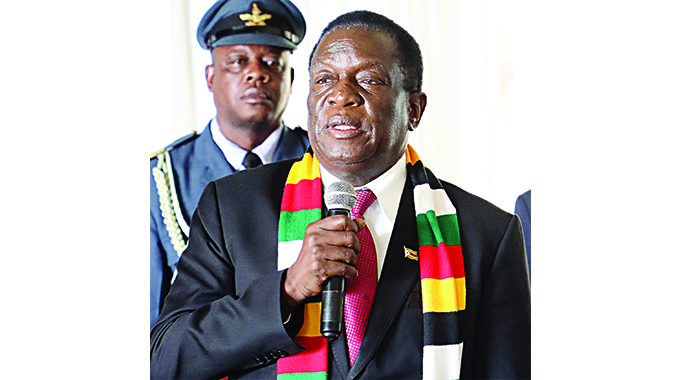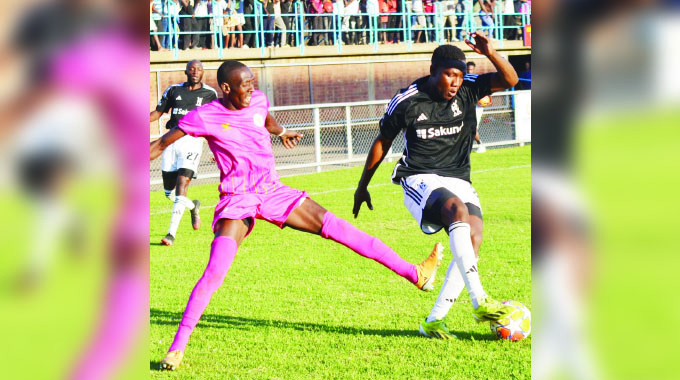Mbangwa’s journey to the top of cricket commentary

Dingilizwe Ntuli, Sports Editor
SPORT on television without sound is just not the same, and over the years, dozens of celebrated commentators have and continue to enrich our sport viewing experience.
Just like celebrated sports stars, some commentators will also go down in history as their words have accompanied the biggest sporting moments.
One such announcer whose words accompany big sporting events is former senior national cricket team medium pacer and pay per view television channel SuperSport cricket commentator Mpumelelo Mbangwa.
Mbangwa (45) is a polished commentator whose smooth commanding voice echoes in cricket lovers’ living rooms around the world.
His most recent foray was among the few elite commentators at the T20 Cricket World Cup won by Australia in Dubai two weeks ago.
But how was the path of Mbangwa’s journey to the top of cricket commentary in the world.
He says the journey started in 1985 when he was first introduced to the game in primary at Rhodes Estate Preparatory School (REPS) in Matopos by New Zealander Bob Blair with many others. He said Blair taught him the basics of the game of cricket at the age of nine and he immediately took a liking to it.
He soon became a regular in the REPS team alongside former Chevrons fast bowler Henry Olonga.
His skills and talent saw him being called up to the Matabeleland Under-12 team and that was when he fell in love with cricket because he got to meet new faces and made new friends on various trips he made to different schools and provinces.
“Matabeleland Under-12 was my first experience of representative age group cricket and that was much fun as we got to play at what was called Partridges Week (the national primary schools cricket week).
Subsequent to that was going through the age groups from Under-13 right up to Zimbabwe Schools with pretty much the same guys as your opponents at school and teammates in the representative teams,” said Mbangwa.
He made Zimbabwe Schools while at Milton High School in Bulawayo, which he captained as head boy in 1994.
In 1996, Mbangwa was called up to the Zimbabwe senior national team training squad, which was a great opportunity for him to impress and get selected.
As fate would have it, Mbangwa was drafted into the team after the first choice bowlers sustained injuries in a tour of Pakistan in 1996 and he quickly made a statement by taking the wickets of Ijaz Ahmed and Wasim Akram in his Test debut.
“My first cap was on an away trip to Pakistan and I remember the day as if it was yesterday. I doubt that I will ever forget it as it was the realisation of a quite unlikely dream.
The nerves were potentially debilitating and I think as much as they were because of a desire to do well, they were also because of how surreal it was that I was going to take to the field of play at the pinnacle of the sport I love and represent my country.
To this day, I count it as a special privilege and top-notch achievement of which I am grateful and proud,” he said.
Mbangwa said it was easy for him to integrate into the team because then there were a number of players of his age that had come through age group cricket and played club and provincial cricket with him such as Olonga, Gavin Rennie, Everton Matambanadzo and Gary Brent.
Because he had almost literally grew up with these players at various levels of cricket, Mbangwa said he hung out with them and they became quite close.
He enjoyed the competition and how testing it was playing against wonderful players across the world, but best of all he enjoyed being part of a team, as it meant going through things with people on or off the field.
“There was an innocence and great camaraderie through those youthful years. I disliked discovering traits in myself and my teammates which were not honourable, but have come to appreciate, with age, that we live and we learn through various correct and incorrect choices. It’s all really part of growing up and life.”
Mbangwa struggled to maintain consistency for the Chevrons and decided to stop playing cricket in 2004 when he started becoming curious about how sports television broadcast works.
“I was not a regular in the national side and so the buzz of competition was replaced by the adrenaline of live television.
I did not really set my sights on commentary and cricket broadcast, but my interest peaked when I was introduced to it in 2003 as a guest commentator.
I became curious about how the whole chain of events that leads to the viewer at home getting the picture of what’s happening at a cricket ground.
I found it so interesting that I really would have been quite happy performing any of the roles in the production process.
“However, the only thing I was qualified for was giving my thoughts on the game I loved, as that is where I have experience. Of course, at the raw stage of it in the beginning, there is no method, style or grace in delivery because one has no idea, but over time one learns about it and improves.
Sufficient improvement means you get employed and enjoyment and fulfilment mean you keep accepting the requests that come. I still absolutely love the game and bringing it to the homes and ears of millions is enjoyable in itself for the job but doubly so as I enjoy the game of cricket so much,” Mbangwa said.
In 2005, Mbangwa said he was called to become a part of the SuperSport family and his first commentary was covering a Lashings XI tour of South Africa during which they played against a couple of franchises.
He said the process of broadcasting with SuperSport is dynamic, ever improving and challenging in terms of growth and skills development.
Witnessing the best against the best at close quarters in the ICC T20 World Cup and being at world cricket events has been one of the most fulfilling desire in his commentary career.
“There is a buzz that is difficult to explain when it comes to tournament cricket and the fact that fans are allowed again now ensures a return of that magic. In terms of commentary at the events, it is only different in that there is a look and feel which is different to a franchise tournament like the Indian Premier League or other domestic franchise tournaments.
ICC events are more formal, but in terms of delivery, it’s all the same. Just that the little deemed inappropriate is stripped away.”
Preparation for commentating, Mbangwa said, is continual in a tournament, as one must watch every game to know first-hand what happened.
He said there is the reading of notes, news and statistics for one to make sense and speak from a position of knowledge rather than making up stuff as you go along.
“My own ‘dos and don’ts’ without getting technical about commentary would be to say it’s important to be genuine and to respect the viewers and also to inform and entertain.
As a passionate cricket fan who wants to see the game in his native Zimbabwe flourishing just like his commentary career, Mbangwa also aired his views on what he believes should be done for the local game to improve.
“I believe that a system that works from the bottom up is imperative and it’s the only way to get real development and production of good cricketers.
There is a tendency to focus more on the national team than anything else and I believe that is the wrong way round. More effort should be put into ensuring the game is sustained in schools and clubs as well as in provincial representative sides.
“I appreciate the economic challenges, but without a sustained season where players consistently play the game, you get stop-starts, which essentially mean that learning is not occurring well enough from game to game and therefore players have to try and learn the game at international level, which is difficult when results and performances could mean you don’t get a long run or play consistently,” Mbgangwa said.
To those planning to take up careers, in cricket commentary, Mbangwa’s advice is for them to reach for the sky.
“I really do not believe anybody should limit themselves.
I also believe that each person’s path is different even if the destination is the same. There is a famous quote that says ‘we do not stop playing because we are old, we grow old because we stop playing’. I mention it in suggestion that players should play as long as possible.”











Comments